Search
Remove Ads
Advertisement
Summary 
Loading AI-generated summary based on World History Encyclopedia articles ...
Search Results
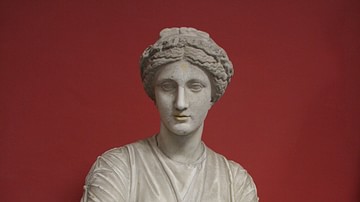
Definition
Muse
In Greek mythology, the nine Muses are goddesses of the various arts such as music, dance, and poetry. Blessed with wonderful artistic talents, they also possess great beauty, grace, and allure. Their gifts of song, dance, and joy helped...
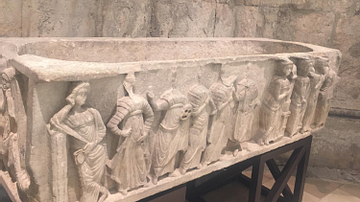
Image
Muse Sarcophagus, Lisbon
The Muse Sarcophagus, found in Valdo dos Frades, dating from the end of the 3rd or beginning of the 4th century CE, now located in The Carmo Archaeological Museum, Lisbon.
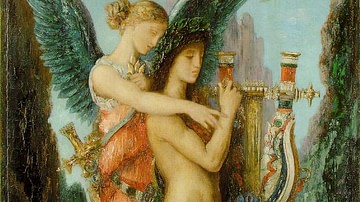
Image
Hesiod and the Muse
Hesiod and the Muse,1891,oil on canvas by Gustave Moreau
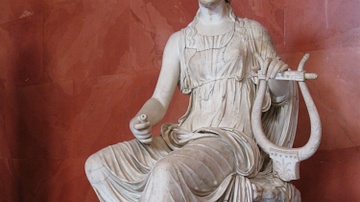
Image
Terpsichore - the Muse of Dance
A statue of Terpsichore, the Greek Muse of Dance. A 2nd century CE copy from a Greek original (The State Hermitage Museum, St. Petersburg).
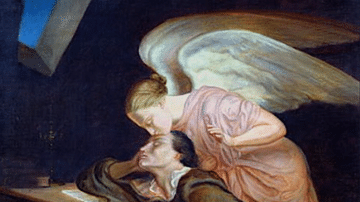
Image
The Kiss of the Muse by Cézanne
A c. 1859 painting in oils, The Kiss of the Muse or Dream of the Poet, by Paul Cézanne (1839-1906), the French post-impressionist artist. Cézanne's early works show a strong influence from Renaissance art. This example and others have the...
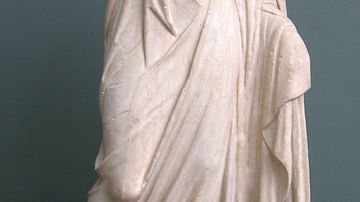
Image
Polymnia - Muse of Hymns
A Roman statue of Polymnia, the Muse of hymns to the gods and heroes. 2nd century CE. (Ny Carlsberg Glyptotek, Copenhagen, Denmark)
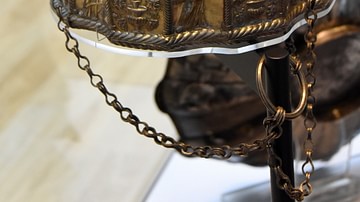
Image
The Muse Casket from the Esquiline Treasure
This elaborate cosmetics box, suspended on three chains, holds five small canisters for perfumes and unguents. The outside is decorated with images of eight of the nine classical Muses. A 9th figure on the top of the casket may be the final...
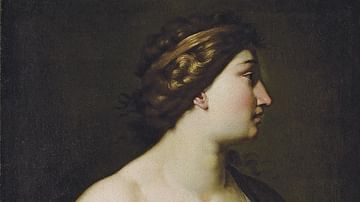
Image
Calliope, muse de l'éloquence et de la poésie épique by Cesare Dandini
Calliope, muse de l'éloquence et de la poésie épique (Calliope, muse of eloquence and epic poetry) by Cesare Dandini.
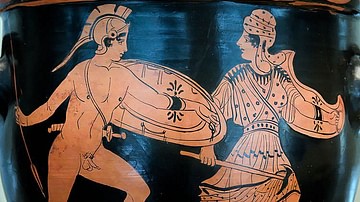
Article
A Visual Who's Who of Greek Mythology
Achilles The hero of the Trojan War, leader of the Myrmidons, slayer of Hector and Greece's greatest warrior, who sadly came unstuck when Paris sent a flying arrow guided by Apollo, which caught him in his only weak spot, his heel. Adonis...
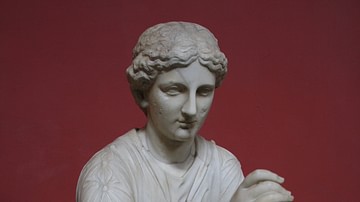
Definition
Calliope
Calliope (also spelt Kalliope) is the Muse of epic poetry and heroic song in Greek mythology. She is considered the leader of the Muses and the most honoured of them all. She is often represented in art with a tablet on her knee and a stylus...